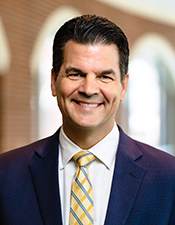Date of Award
Spring 5-2021
Document Type
Thesis
College
Richard W.Riley College of Education
Degree Program
Physical Education, Sport, and Human Performance
Degree Name
Master of Science
Thesis Advisor
Joni M. Boyd
Committee Member
Jason Chung
Committee Member
Logan Daughtry
Keywords
COVID-19, Physical activity, College students, Psychometric beliefs, Physical well-being, Mental well-being
Abstract
Objectives: The purpose of this study was to examine PA behaviors, social support and self-efficacy for PA, Rosenberg self-esteem, and perceptions of body weight before and after the COVID-19 shutdown (March 15, 2020) among the college demographic.
Participants: 311 college students from a four-year, comprehensive, southeastern university in the United States were included in the study from December 1, 2020 until March 5, 2021.
Methods: Surveys were conducted via Qualtrics, an online survey system, and consisted of approximately 40 items, including demographic information, PA behaviors, social support and exercise, self-esteem, self-efficacy to exercise, and perceptions of body weight and self-image. Additionally, the questionnaires included pre-screening questions related to age, enrollment at a southeastern university, COVID-19 results, and contact tracing associated with COVID-19.
Results: Dependent (paired samples) t-tests suggested that all measured variables were significantly higher before the COVID-19 shutdown occurred (prior to March 15, 2020) than after the shutdown: vigorous PA (M= 2.57; M= 2.00; p= <.001), moderate PA (M= 3.29; M= 2.68; p= <.001), walking-only PA (M= 4.64; M= 4.17; p= <.001), social support for PA (M=22.47; M=21.06; p=.007), self-efficacy for PA (M=15.16; M=13.96; p=<.001), self-esteem (M=24.05; M=24.88; p=.002), and body image (M=8.72; M=9.11; p =.002).
Conclusion: These results suggest that the PA levels measured significantly decreased upon the COVID-19 shutdown, as well as several psychometric factors that could be related to physical well-being, highlighting the importance of PA. Campuses and recreation centers should continue to offer safe and effective recreational activities and health services, whether students are on or off campus.
Recommended Citation
White, James III, "Examining Physical Activity Behaviors and Psychometric Beliefs of College Students Before and After the COVID-19 Shutdown" (2021). Graduate Theses. 137.
https://digitalcommons.winthrop.edu/graduatetheses/137
Included in
Behavior and Behavior Mechanisms Commons, Cognition and Perception Commons, Mental and Social Health Commons, Sports Sciences Commons

